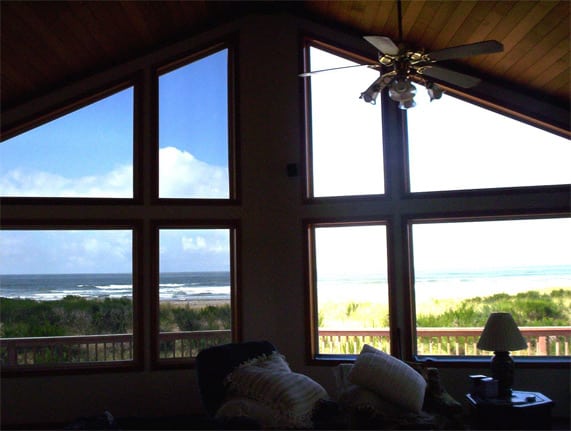Why Residential Window Tint is Perfect for Home Offices and Studies
Why Residential Window Tint is Perfect for Home Offices and Studies
Blog Article
Just How Residential Home Window Tinting Enhances Your Home's Power Performance
Residential window tinting presents a compelling option for home owners seeking to enhance energy effectiveness within their living areas. By using specialized movies to home windows, it effectively decreases warm transfer, consequently maintaining interior temperature levels and minimizing the need for excessive heating or cooling.
Comprehending Window Tinting
Comprehending window tinting is necessary for home owners looking for to boost both convenience and power performance in their space. Residential Window Tint. Home window tinting entails the application of a slim film to the interior or outside surface area of glass home windows. This film can dramatically regulate the quantity of sunshine and heat that gets in a home, thus influencing indoor climate conditions
There are various types of home window tinting movies readily available, each with distinctive residential or commercial properties. As an example, dyed movies take in solar power, while reflective films disperse it far from the glass surface. Ceramic films supply an equilibrium of exposure and heat rejection, making them a preferred selection among homeowners. The effectiveness of home window tinting is commonly measured by its Visible Light Transmission (VLT) percentage, which shows exactly how much light can go through the movie.
Advantages of Energy Performance
Window tinting not just boosts visual appeals yet likewise plays a substantial function in boosting energy performance within domestic rooms. By decreasing warmth transfer through home windows, tinted films develop a more steady indoor environment, which can result in significant reductions in energy consumption for heating & cooling. This power efficiency equates right into lower utility costs, providing house owners with substantial long-lasting financial savings.

In addition, home window tinting enhances the convenience of living areas. By reducing glare and obstructing damaging UV rays, tinted home windows produce a more positive atmosphere, which can lead to boosted wellness for occupants. The security against UV rays additionally helps maintain furniture and floor covering from fading, adding to the longevity of family items.
Just How Tinting Works
Tinting movies operate via a combination of innovative materials and modern technologies developed to regulate the amount of solar power entering a home. Largely composed of polyester, these movies frequently include metallic or ceramic fragments that absorb and show warmth. This dual capacity allows them to dramatically reduce the infiltration of ultraviolet (UV) rays and infrared radiation while allowing noticeable light to pass through.
The performance of home window tinting is determined by its solar heat gain coefficient (SHGC), which suggests just how much solar power is i was reading this transferred through the window. Reduced SHGC worths are preferable as they denote better warmth rejection. Additionally, window tints can feature a range of tones, allowing house owners to tailor their aesthetic preferences while improving power performance.
Additionally, these films function as an obstacle, preventing heat loss during chillier months by showing indoor heat back right into the space. This thermal insulation effect complements the cooling benefits acquired during warmer months, adding to a well balanced interior environment year-round. By taking care of solar power properly, residential window tinting not just improves comfort however likewise plays a crucial function in minimizing power usage and reducing utility bills.
Choosing the Right Tint

There are various types of window movies offered, including colored, metalized, and ceramic. Ceramic films provide exceptional heat control without compromising visibility and are highly sturdy, making them a prominent selection.
Visible light transmission (VLT) is another essential variable, as it indicates the quantity special info of natural light that can pass via the colored glass. Homeowners should select a tint with a VLT that complements their lighting preferences while still providing adequate glare decrease.
Furthermore, examining the solar heat gain coefficient (SHGC) can assist figure out how well a color can obstruct heat from sunshine. A reduced SHGC indicates much better heat control, ultimately boosting energy effectiveness.
Setup and Maintenance Tips
Correct setup and maintenance are vital components in taking full advantage of the advantages of domestic window tinting. Professionals also utilize specialized methods and tools, which can boost the toughness and effectiveness of the color.
Adhering to installation, maintenance is crucial to prolong the life of the window film. It is advised to wait at least 30 days before cleansing the colored home windows to allow the adhesive to treat totally.
In addition, normal evaluations are advantageous. Check for any kind of peeling or bubbling, which can show improper installment or wear with time - Residential Window Tint. Attending to these issues quickly can stop further damage and preserve energy performance. By adhering to these installation and maintenance pointers, house owners can guarantee their window tinting remains to give substantial energy financial savings and comfort for several years to come.
Final Thought
In conclusion, property home window tinting offers as an effective remedy for improving energy effectiveness within homes. By decreasing warm transfer and obstructing damaging UV rays, window films add to lower energy usage and boosted indoor comfort.
Home window tinting includes the application of a thin film to the inside or exterior surface area of glass home windows. By decreasing warm transfer with home moved here windows, tinted films create a more steady interior climate, which can lead to significant decreases in power consumption for home heating and air conditioning.The effectiveness of home window tinting is measured by its solar warm gain coefficient (SHGC), which indicates how much solar power is transmitted with the window. By handling solar power properly, residential home window tinting not only improves comfort however also plays an important function in reducing energy usage and reducing utility costs.
By decreasing warmth transfer and obstructing damaging UV rays, window movies add to lower power usage and boosted interior comfort.
Report this page